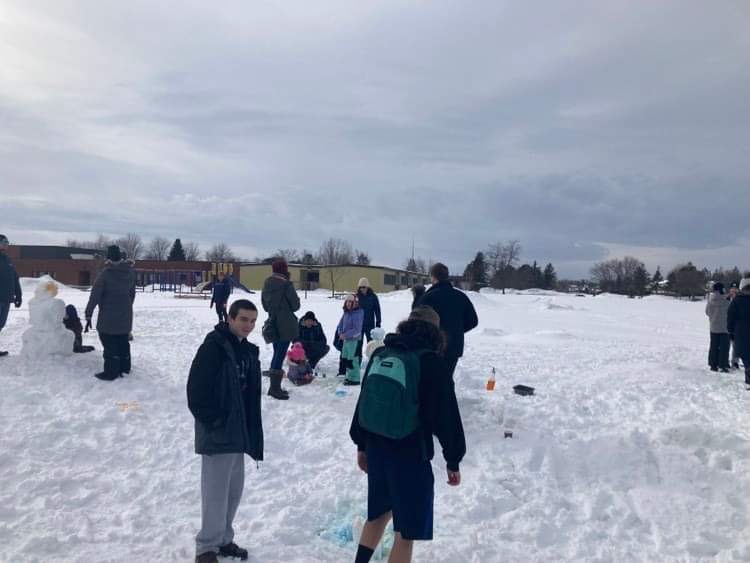
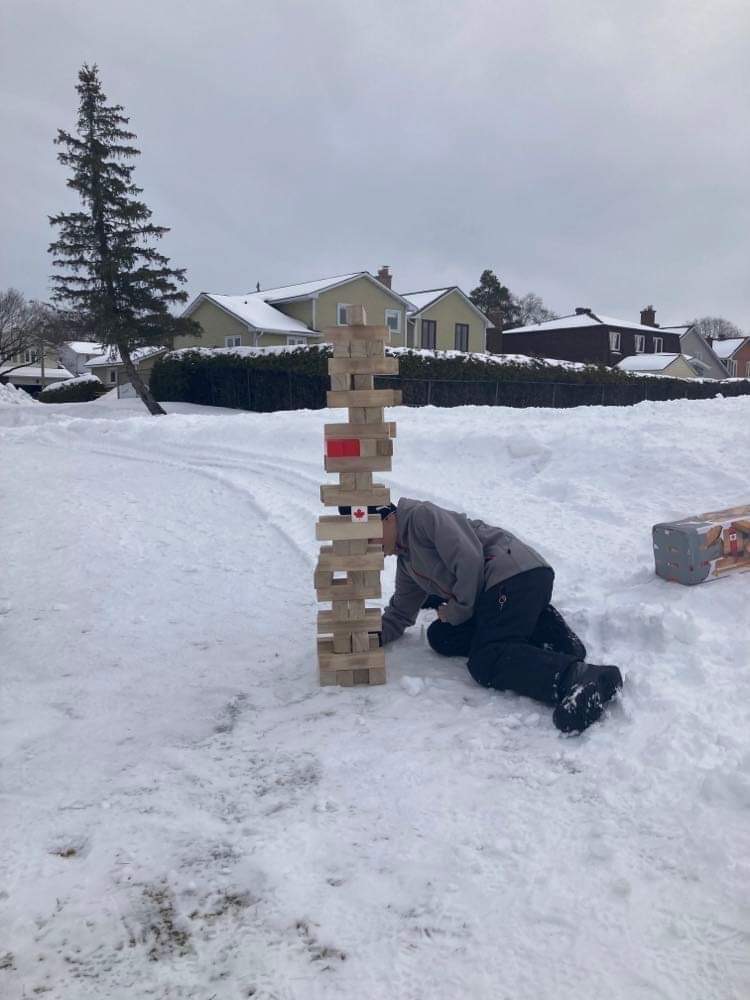
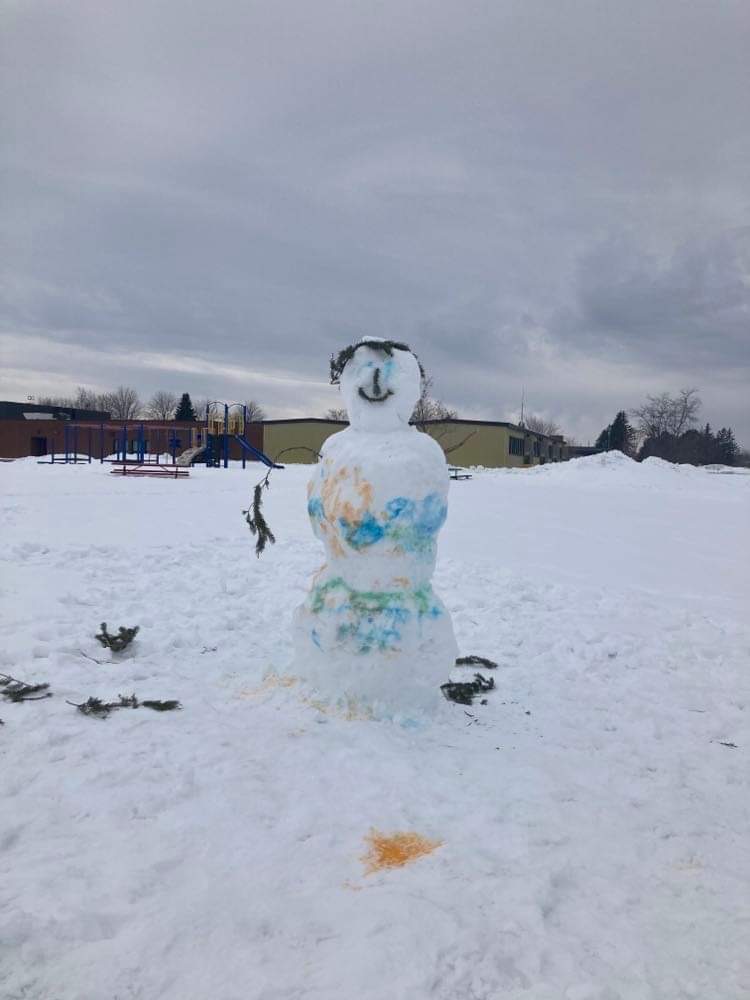
Family Day Winter Carnival
Thank you to everyone who came out to our Family Day Winter Carnival on February 19! It was lovely to see so many of you enjoying the rink, games, hot chocolate and Taffy.
Thank you to Councillor Dudas for co-hosting this event with us. We look forward to making this an annual tradition.
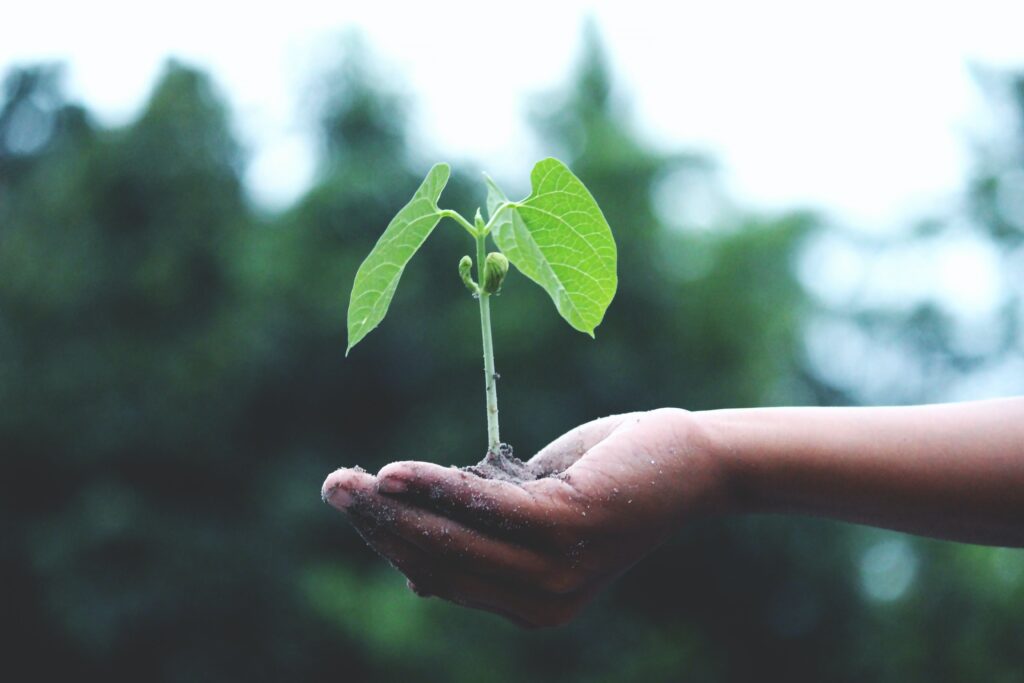
Save the date: Earth Day Event
Mark your calendars! The CGOWCA Environment Committee invites you to a ‘Cleaning the Capital’ event on Saturday, April 22nd 9am – 3pm. Stay tuned for more details next month!
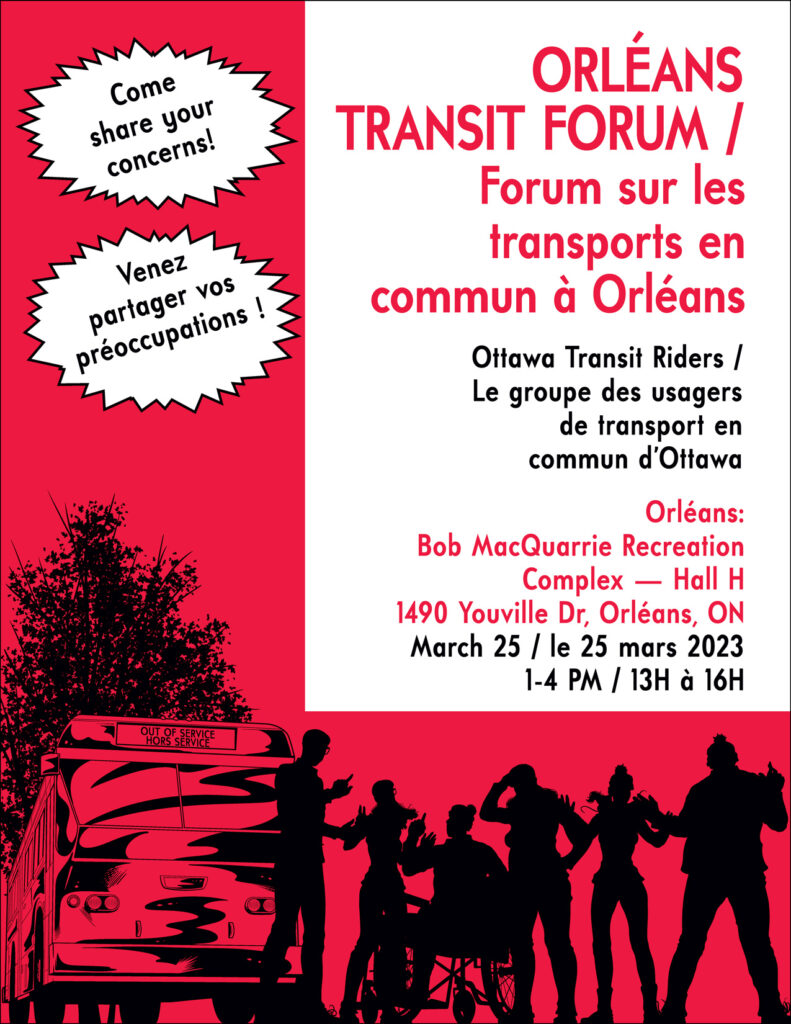
Orléans Transit Forum
On March 25th, the Ottawa Transit Riders will host a forum for residents to talk transit. Come join us. We want to hear about your frustrations – which buses are cancelled often, which ones are often over-crowded?
We want to hear solutions too. Would you re-instate express buses? Are there routes that need more capacity? Are there destinations in Orléans that need more service?
Sign up here on Eventbrite so we know how many cookies to buy.
- Saturday March 25th
- 1pm to 4pm
- Bob MacQuarrie Recreation Complex – 1490 Youville Drive
Transit is an essential service – let’s make it a priority for this new council.

Update from the Bridge Committee
The Bridge Committee got some press recently when Radio-Canada interviewed a few members as part of a story about East Enders becoming vocal against an interprovincial bridge in the Greenbelt! It was a positive step forward for our committee in its efforts to bring awareness of the issue to the community. (Available in French only)
- https://ici.radio-canada.ca/tele/le-telejournal-ottawa-gatineau/site/segments/reportage/432249/6e-lien-pont-ottawa-gatineau-transport
- https://ici.radio-canada.ca/nouvelle/1955596/pont-lien-ottawa-gatineau-orleans-environnement?fromApp=appInfoIos&partageApp=appInfoiOS&accesVia=partage
Plans for a widespread information campaign continue to be the focus of the CGOWCA Bridge Committee. People who live in the east end need to know that a bridge through the greenbelt would have disastrous consequences for residents who travel to and from downtown Ottawa and beyond due to the influx of 25,700 additional vehicles that would be travelling daily along our already over capacity highway 174. They also need to understand that a bridge the size of the MacDonald Cartier Bridge could be running through our greenbelt a few hundred metres from the homes in Convent Glen North. Volunteers are needed to get this project organized and/or to visit their own neighbours to discuss how the bridge will impact our community and what people can do to help prevent that from happening. To find out more, we can be reached at CGNbridgecommittee@gmail.com.
Many folks from Convent Glen attended the recent NCC Public Meeting about the Sir George Etienne Cartier Parkway Park and, while impressed with the plans for the park, were dismayed that the NCC wasn’t prepared to discuss the bridge, or the conflict seen by the community in planning for a bridge and a park in the same place.
Councillor Matt Luloff’s recent article in the Ottawa Citizen has generated a lot of discussion in the community. It is good to know that our representatives are backing us. A positive meeting was had with Marie France Lalonde, and she has reaffirmed her opposition to a bridge. We will be discussing how we can work together to oppose a bridge that will have serious consequences for our community.
For more information about the bridge visit our page on the CGOWCA’s website: https://www.conventglenorleanswood.com/interprovincial-crossing/
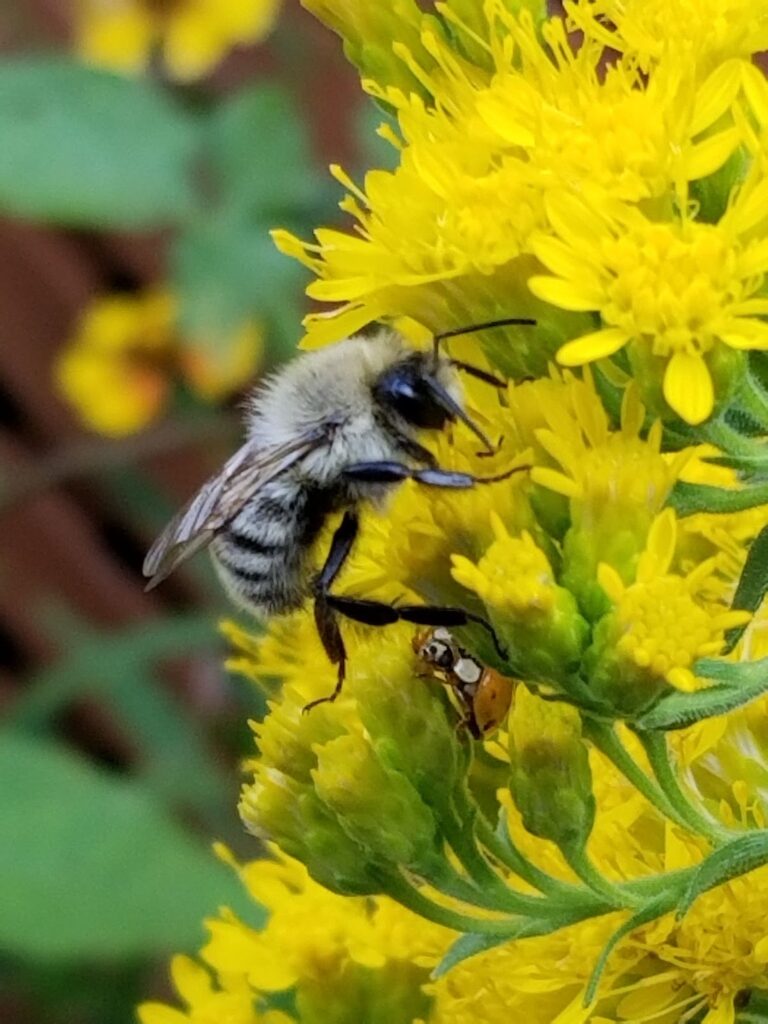
Native Plants & Pollinator Gardens at Home
Nadia Ouellette, CGOWCA Environment Committee
Have you heard talk of native plant gardening and pollinators? Curious what all the fuss is about?
There are many benefits to planting native plants in your garden! Native plants come in all shapes and sizes and bring beauty to our yards. They are instrumental in the fight against pollinator decline and dying songbird populations. They sequester carbon and reduce rainwater runoff. Edible species add variety to our diets and ease strain on our wallets. Since native plants evolved for our climate and soil conditions, they won’t need to be babied with additional watering and fertilizer. They are better for your back, your wallet and the environment!
Why should we care about pollinators?
You’ve probably heard that the Monarch butterfly is endangered. In fact, in the past four decades we have also lost 45% of all invertebrates. Pollinators, such as bees, butterflies, flies, beetles, moths, and hummingbirds, visit flowers to drink nectar and in so doing move pollen from one plant to another. Plants need pollinators to carry their pollen to other plants in order to reproduce, which means producing seeds, fruits, and the next generation of plants. One of every four bites of food we eat is thanks to the free labour of pollinators. The United States estimates that native pollinators provide three billion dollars of annual service to the economy.
Ok, but isn’t my garden already helping?
Most native bees are considered pollen specialists and only use pollen from specific plants. Native butterflies have co-evolved with native plants over millennia and most caterpillars only eat leaves of one species of plant. You may be aware that the Monarch caterpillar only survives by eating leaves of milkweed plants. Monarch butterflies will continue to struggle unless we regenerate native milkweed in our urban areas. Are you aware that the Giant Swallowtail caterpillar has only two Ontario host plants? One of them, the Common hoptree, is a species at risk in Ontario. These caterpillars play a vital role in feeding baby birds and are necessary for our songbird population. Plants from Asia or Europe do not help our local ecosystem.
Consider the species of plants on your property. Most, if not all, are cultivated plants (cultivars) bred for traits that appeal to humans, not pollinators, and are not originally found in our area. Take a moment to look at your garden when it is in bloom, do you see bees and hummingbirds feeding? If you are looking to add native plants that attract pollinators don’t go to the big box stores, they will mostly have cultivars and non-native species. Choose a native plant nursery or a landscaper such as:
- Ferguson Tree Nursery – has flowers, shrubs and trees.
- Solidago Farm
- Beaux Arbres Plantes Indigènes / Native Plants – Specializing in plants native to the Ottawa Valley and garden-worthy wildflowers from eastern North America
- Ontario Native Plants – Native Plants Delivered To Your Door (onplants.ca)
- A Cultivated Art Inc.
- Fletcher Wildlife Garden annual native plant sale – OFNC – Canada’s oldest field naturalist club
- Rewild Landscaping
Want to learn more?
- Ottawa Wildflower Seed Library – Local organization that gives away FREE seeds in the fall and seedlings in the spring. Great resource on native plant species, garden plans etc.
- HOMEGROWN NATIONAL PARK – Show off your hard work and add your garden to the list.
- Home – Ontario Invasive Plant Council (ontarioinvasiveplants.ca) – Remove invasive species from your garden, they are actively harming our environment. Be on the lookout for invasives still being sold at garden centres.
- Invasive species | City of Ottawa
- Pollinator Partnership Canada | P2C – Great resource on Canadian Pollinators and native plant gardening.
- Habitat-Gardening-Resources-January2023.pdf (davidsuzuki.wpenginepowered.com) – David Suzuki list of gardening resources
Want to help?
The CGOWCA Environment Committee is looking for teachers or parents who can help establish pollinator gardens at local schools. We are creating pollinator gardens in local parks and will be needing volunteers to help us. Want to get involved or learn more? Reach out to our committee chair, Cassandra Polyzou at ecopolyzou@gmail.com.
